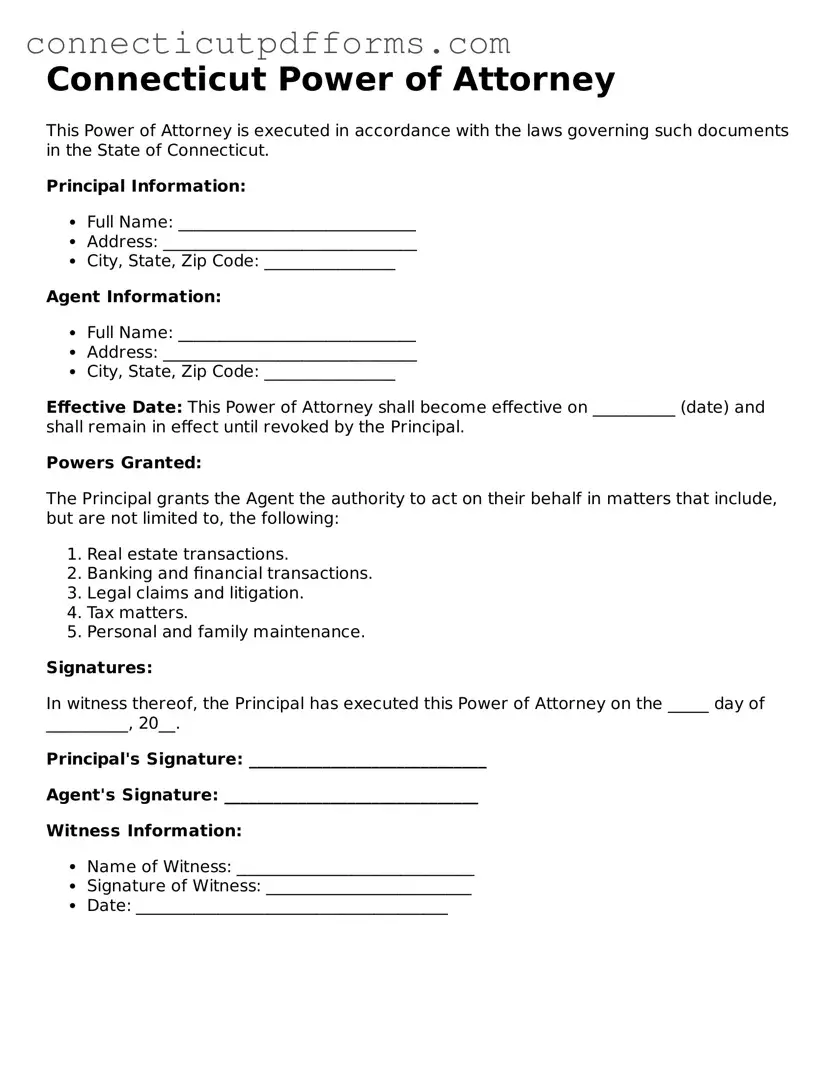The Connecticut Power of Attorney (POA) form is similar to the Health Care Proxy. A Health Care Proxy allows an individual to appoint someone to make medical decisions on their behalf if they become unable to do so. Like the POA, it grants authority to another person, but its focus is specifically on health-related matters. Both documents empower a designated agent to act in the best interests of the principal, ensuring that their wishes are respected in critical situations.
Another document akin to the Connecticut POA is the Living Will. A Living Will outlines an individual's preferences regarding medical treatment in situations where they cannot communicate their wishes. While the POA can cover a wide range of financial and legal decisions, the Living Will specifically addresses end-of-life care. Both documents work together to provide comprehensive guidance about a person's desires, particularly in health care contexts.
Understanding the various legal documents available is essential for effective personal and financial planning. For motorcycle owners in New York, having the right documentation is particularly important. The Templates and Guide can provide valuable resources to help navigate the intricacies of motorcycle ownership transfers and ensure all legal aspects are covered.
The Advance Directive shares similarities with the Connecticut POA as well. An Advance Directive combines elements of both a Living Will and a Health Care Proxy. It allows individuals to express their wishes about medical treatment and appoint someone to make decisions on their behalf. This document ensures that a person's health care preferences are honored, just as the POA ensures their financial and legal interests are protected.
The Revocation of Power of Attorney is another related document. This form is used to cancel a previously granted Power of Attorney. It serves as a formal notice that the agent’s authority has ended. Just as the original POA establishes authority, the revocation document ensures that the principal retains control over their affairs, allowing them to change their mind when necessary.
The Durable Power of Attorney is a variation of the standard Power of Attorney. It remains effective even if the principal becomes incapacitated. This feature distinguishes it from a regular POA, which may become invalid under such circumstances. Both documents serve to delegate authority, but the Durable Power of Attorney provides added security for ongoing decision-making during times of vulnerability.
Finally, the Financial Power of Attorney is closely related to the Connecticut POA. This document specifically grants authority to manage financial matters, such as banking and property transactions. While a general POA can cover various areas, the Financial Power of Attorney focuses solely on economic decisions. Both forms allow individuals to appoint trusted agents to handle their affairs, ensuring that their interests are managed effectively.

